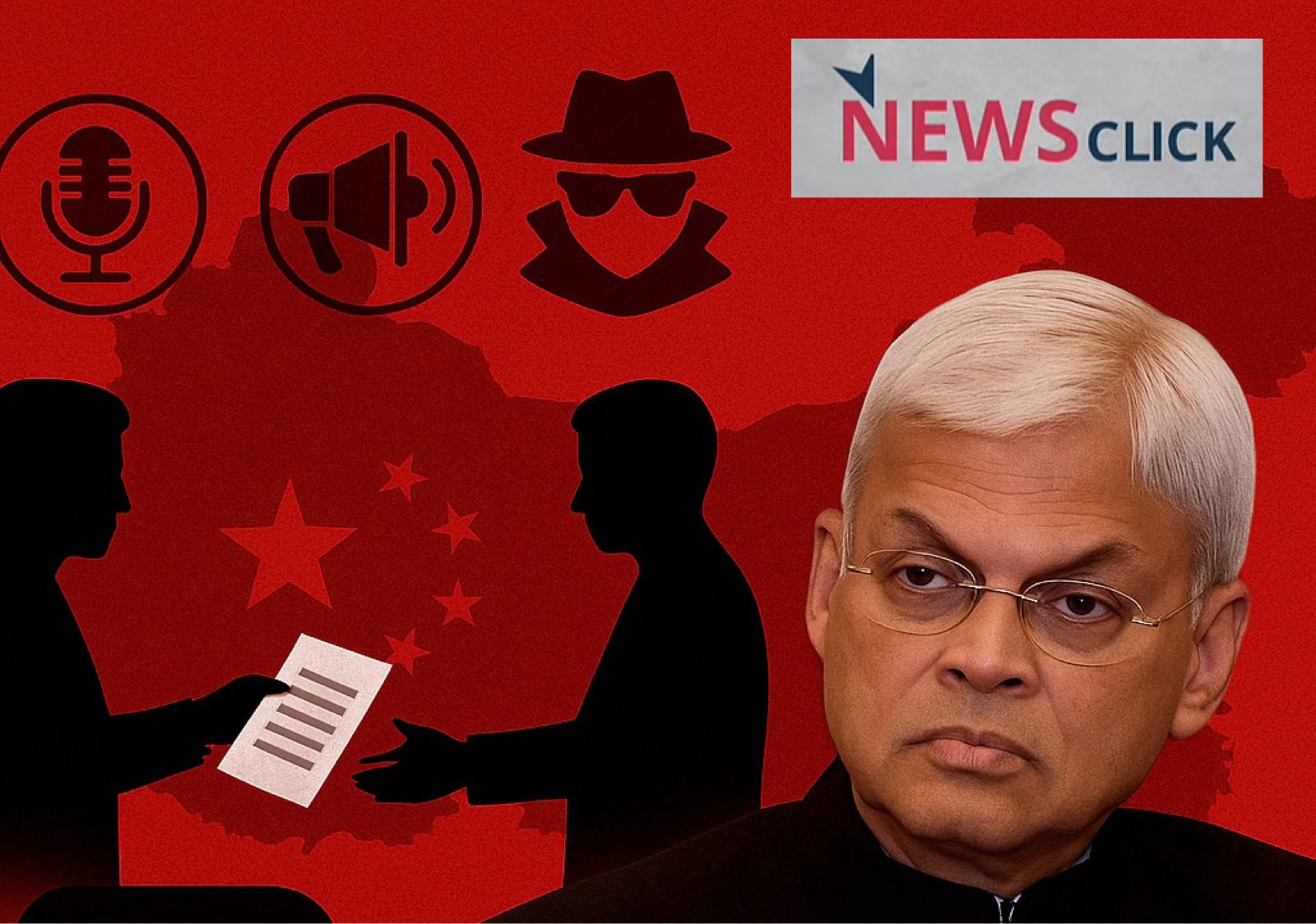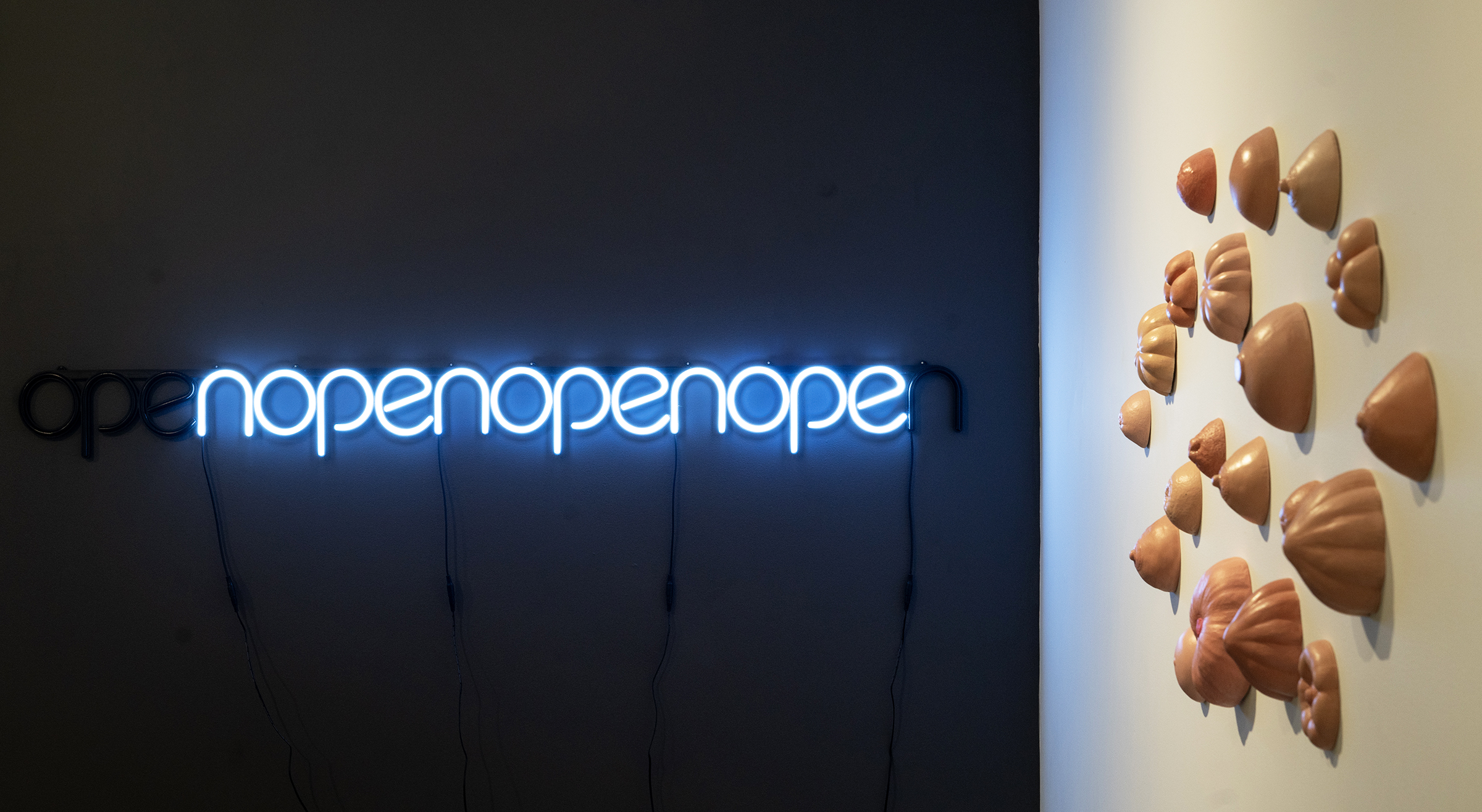Was Ashley Tellis the missing link between Soros-funded Carnegie think tank, China’s espionage, and the anti-India lobby?
When the U.S. Department of Justice charged Ashley J. Tellis, a senior adviser to the U.S. State Department and a contractor with the Pentagon’s Office of Net Assessment, for espionage and unlawful retention of classified documents, Washington’s foreign policy establishment was left stunned. Tellis, long regarded as an “India expert,” allegedly removed sensitive military documents from secure facilities and met Chinese officials multiple times in Virginia between 2022 and 2023. Federal prosecutors say that he discussed “emerging technologies” and “Iran–China relations,” and was seen carrying manila envelopes and accepting gift bags from Chinese representatives. Over 1,000 classified papers marked ‘Top Secret’ were recovered from his home. Prosecutors believe Tellis exploited his government access while serving as an unpaid senior adviser at the State Department and a contractor for the Department of Defense, using his proximity to policy circles to leak or discuss restricted information. The Tata Chair at Carnegie, funded by Soros’s Network Beyond his government role, Tellis held a prestigious position as the Tata Chair for Strategic Affairs at the Carnegie Endowment for International Peace (CEIP), one of the most influential think tanks in Washington. But Carnegie’s image as a beacon of diplomacy hides a deeply compromised funding structure, particularly its multi-million-dollar ties to George Soros’s Open Society Foundations (OSF). Between 2019 and 2023, Carnegie received over $3 million from OSF, apart from funds from U.S. defense contractors and foreign governments. The same institution that housed Tellis’s academic work has long functioned as a globalist policy factory, one that subtly aligns with Soros’s ideological project of eroding national sovereignty and “correcting” governments that refuse to conform to Western liberal orthodoxy. George Soros: The billionaire who eddles with nations George Soros has spent decades leveraging his fortune to manipulate politics worldwide. Through the Open Society Foundations, he funds NGOs, activists, journalists, and think tanks under the banner of “democracy promotion” but in practice, his empire is notorious for regime change funding, narrative engineering, and financial pressure on sovereign nations. From Eastern Europe’s “colour revolutions” to funding far-left activism in the United States, Soros’s blueprint is consistent: use money and media to delegitimize governments, undermine conservative leaders, and reshape national institutions. India has been among Soros’s most visible targets. He has personally declared that PM Modi’s India represents “one of the most frightening setbacks to democracy.” Since the early 2000s, OSF has cultivated a web of Indian NGOs, academics, and journalists, from Lawyers Collective and Centre for Policy Research to Alt News and Scroll, all purporting to defend “civil liberties” while advancing ideological hostility toward the Indian state. Tellis’s Anti-India essays: Propaganda in the garb of policy Within this Soros–Carnegie ecosystem, Ashley Tellis penned two major essays in Foreign Affairs that systematically undermined India’s global standing, both of which now appear, in hindsight, to echo Chinese and globalist talking points. In May 2023, his essay “America’s Bad Bet on India” warned Washington against trusting New Delhi as a strategic partner. He portrayed India as a selfish, unreliable actor and accused it of “democratic erosion” and “strategic hypocrisy.” His advice was unmistakable: America should lower expectations from India, implicitly paving the way for a softer posture toward Beijing. Two years later, in June 2025, Tellis authored “India’s Great-Power Delusions”, mocking India’s civilizational rise and arguing that its nationalism had made it “illiberal.” He dismissed India’s push for multipolarity, which challenges both Chinese dominance and Western hegemony as “delusional” and “counterproductive.” Taken together, these essays not only attacked India’s democratic legitimacy but also subtly reinforced China’s position as the more “rational” power in Asia. Now, with Tellis under investigation for espionage on behalf of China, his writings look less like academic critique, and more like the ideological scaffolding of a psy-ops campaign to seed anti-India sentiment within U.S. policy circles. NewsClick and Beijing’s propaganda in India What Tellis was doing in the corridors of Washington, NewsClick was replicating in the newsrooms of New Delhi. In August 2023, The New York Times published an explosive exposé revealing that Neville Roy Singham, an American millionaire “working closely with the Chinese Communist Party’s media machine,” was funneling money to NewsClick, a far-left Indian portal. The NYT found that NewsClick’s coverage was “sprinkled with Chinese government talking points”, with one video declaring, “China’s history continues to inspire the working



Tellis, long regarded as an “India expert,” allegedly removed sensitive military documents from secure facilities and met Chinese officials multiple times in Virginia between 2022 and 2023. Federal prosecutors say that he discussed “emerging technologies” and “Iran–China relations,” and was seen carrying manila envelopes and accepting gift bags from Chinese representatives.
Over 1,000 classified papers marked ‘Top Secret’ were recovered from his home. Prosecutors believe Tellis exploited his government access while serving as an unpaid senior adviser at the State Department and a contractor for the Department of Defense, using his proximity to policy circles to leak or discuss restricted information.
The Tata Chair at Carnegie, funded by Soros’s Network
Beyond his government role, Tellis held a prestigious position as the Tata Chair for Strategic Affairs at the Carnegie Endowment for International Peace (CEIP), one of the most influential think tanks in Washington. But Carnegie’s image as a beacon of diplomacy hides a deeply compromised funding structure, particularly its multi-million-dollar ties to George Soros’s Open Society Foundations (OSF).
Between 2019 and 2023, Carnegie received over $3 million from OSF, apart from funds from U.S. defense contractors and foreign governments. The same institution that housed Tellis’s academic work has long functioned as a globalist policy factory, one that subtly aligns with Soros’s ideological project of eroding national sovereignty and “correcting” governments that refuse to conform to Western liberal orthodoxy.
George Soros: The billionaire who eddles with nations
George Soros has spent decades leveraging his fortune to manipulate politics worldwide. Through the Open Society Foundations, he funds NGOs, activists, journalists, and think tanks under the banner of “democracy promotion” but in practice, his empire is notorious for regime change funding, narrative engineering, and financial pressure on sovereign nations.
From Eastern Europe’s “colour revolutions” to funding far-left activism in the United States, Soros’s blueprint is consistent: use money and media to delegitimize governments, undermine conservative leaders, and reshape national institutions.
India has been among Soros’s most visible targets. He has personally declared that PM Modi’s India represents “one of the most frightening setbacks to democracy.” Since the early 2000s, OSF has cultivated a web of Indian NGOs, academics, and journalists, from Lawyers Collective and Centre for Policy Research to Alt News and Scroll, all purporting to defend “civil liberties” while advancing ideological hostility toward the Indian state.
Tellis’s Anti-India essays: Propaganda in the garb of policy
Within this Soros–Carnegie ecosystem, Ashley Tellis penned two major essays in Foreign Affairs that systematically undermined India’s global standing, both of which now appear, in hindsight, to echo Chinese and globalist talking points.
In May 2023, his essay “America’s Bad Bet on India” warned Washington against trusting New Delhi as a strategic partner. He portrayed India as a selfish, unreliable actor and accused it of “democratic erosion” and “strategic hypocrisy.” His advice was unmistakable: America should lower expectations from India, implicitly paving the way for a softer posture toward Beijing.
Two years later, in June 2025, Tellis authored “India’s Great-Power Delusions”, mocking India’s civilizational rise and arguing that its nationalism had made it “illiberal.” He dismissed India’s push for multipolarity, which challenges both Chinese dominance and Western hegemony as “delusional” and “counterproductive.”
Taken together, these essays not only attacked India’s democratic legitimacy but also subtly reinforced China’s position as the more “rational” power in Asia.
Now, with Tellis under investigation for espionage on behalf of China, his writings look less like academic critique, and more like the ideological scaffolding of a psy-ops campaign to seed anti-India sentiment within U.S. policy circles.
NewsClick and Beijing’s propaganda in India
What Tellis was doing in the corridors of Washington, NewsClick was replicating in the newsrooms of New Delhi.
In August 2023, The New York Times published an explosive exposé revealing that Neville Roy Singham, an American millionaire “working closely with the Chinese Communist Party’s media machine,” was funneling money to NewsClick, a far-left Indian portal.
The NYT found that NewsClick’s coverage was “sprinkled with Chinese government talking points”, with one video declaring, “China’s history continues to inspire the working classes.”
Subsequent investigations by the Enforcement Directorate (ED) confirmed that NewsClick received ₹38 crore between 2018 and 2021 from Singham-linked entities. The funds were disguised as “export remittances,” part of a global network financing propaganda in India, South Africa, Brazil, and the United States.
Interestingly, one of NewsClick’s frequent contributors, Paranjoy Guha Thakurta, also played a central role in publishing defamatory content against Adani Group, both through Economic and Political Weekly and The Wire.
OCCRP, Soros, and the Adani hitjob
The attack on Adani Group was not limited to Indian activists. In August 2023, the Organized Crime and Corruption Reporting Project (OCCRP), another “investigative collective” funded by George Soros’s OSF, published a report accusing Adani Group of questionable financial practices.
As OpIndia revealed, OCCRP is backed not only by OSF but also by the Ford Foundation and Rockefeller Brothers Fund, receiving an $800,000 grant from Soros’s foundation to expand its “cross-border investigations.” The group had earlier coordinated with Transparency International under the OSF-backed Global Anti-Corruption Consortium, designed to “build partnerships with civil society”, a euphemism for global political influence.
The timing of OCCRP’s report, following closely on the Hindenburg short-seller attack, triggered turmoil in India’s financial markets. Adani Group rejected the allegations outright, and even the Supreme Court of India ruled that OCCRP’s unverified material “cannot be treated as credible evidence” in ongoing investigations.
The economic subtext was clear: destabilize India’s top industrial conglomerate, dent investor confidence, and weaken the narrative of India’s economic rise, a strategy that benefits both China’s geoeconomic positioning and Soros’s ideological agenda.
Paranjoy Guha Thakurta and the Adani defamation case
The same ecosystem reappears here too. Paranjoy Guha Thakurta, who works as a consultant with NewsClick, authored a 2017 article in Economic and Political Weekly (EPW) alleging that the Modi government tweaked SEZ rules to benefit Adani Group by ₹500 crore. The article was later withdrawn by EPW’s publisher after Adani Group issued a legal notice, prompting Thakurta to republish it on The Wire.
Years later, India’s courts have sided with Adani. In September 2025, a Delhi Court issued an interim injunction restraining Thakurta, journalist Ravi Nair, and several foreign-linked NGOs, including Bob Brown Foundation and Dreamscape Network International, from publishing or republishing defamatory content.
The court observed: “There is a prima facie case in favour of the plaintiff… continual forwarding and publishing of defamatory material could result in a media trial.”
The order directed social media platforms and websites like Google, X, and YouTube to remove defamatory content, with the next hearing scheduled for October 9, 2025.
Coincidence or coordination? The pattern is too perfect
To be clear, there is no conclusive evidence directly connecting Ashley Tellis’s alleged espionage, the NewsClick–Beijing funding trail, the OCCRP’s Soros-linked reports on Adani, or the coordinated anti-India narratives. Yet, the recurring overlaps and timing make the pattern difficult to overlook.
Notably, it is highly coincidental, and deeply concerning, that all these actors, across different fields and continents, were working toward a singular outcome: promoting Chinese talking points, Discrediting India’s leadership and democracy, and Weakening confidence in Indian economic powerhouses like Adani.
Whether through stolen intelligence, manipulated news, or selective “investigations,” the effect is identical, helping Beijing control global narratives and influence policy while undermining India’s ascent as a civilizational power.
The hidden war against India
From espionage in Washington to propaganda in Delhi and financial sabotage in Mumbai, a web of actors: Soros-funded think tanks, Chinese-funded media outlets, and compromised “journalists”, appear to be operating in sync to manipulate global opinion against India.
Ashley Tellis’s arrest simply exposed one node of this sprawling machinery. The true story is far bigger: a coordinated attempt to reshape global perception, suppress India’s nationalist resurgence, and normalize China’s expansionism.
The battlefield is no longer physical; it’s informational. The weapons are not missiles, but money, media, and manipulation.
And in this silent war, India’s greatest defense will be the one thing its adversaries fear most: an informed citizenry that refuses to be deceived by sell-out ‘experts’, ‘neutral’ journalists, and ‘selfless philanthropist’ — all of them coincidentally working towards advancing Beijing’s geopolitical ambitions.







































































